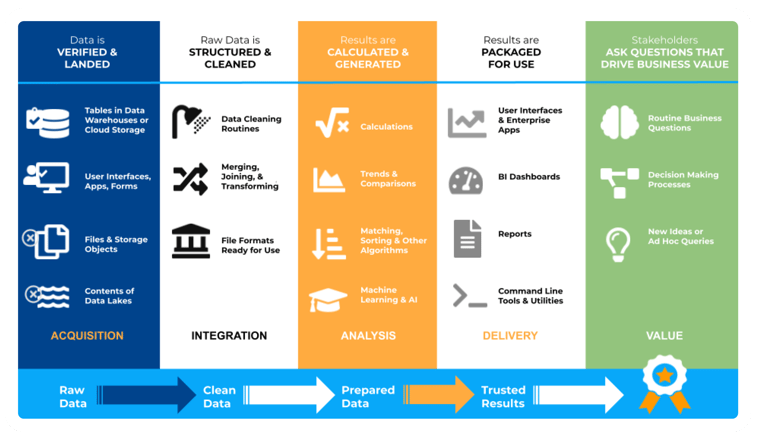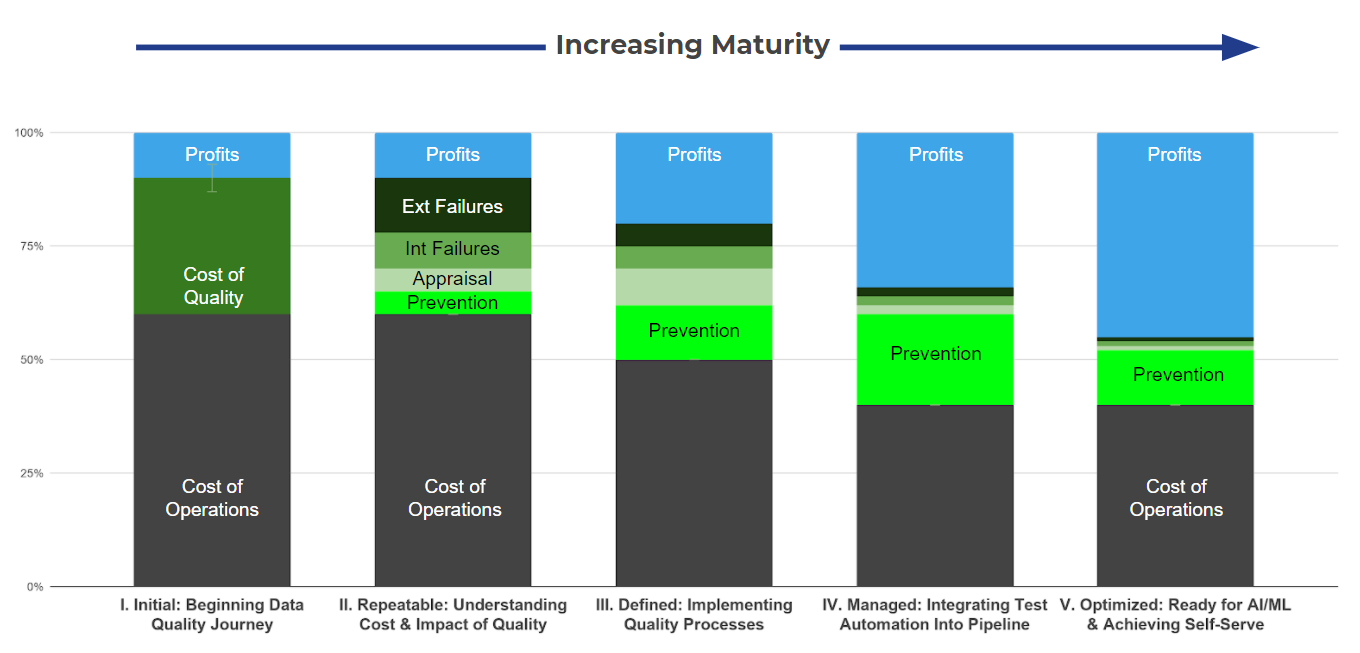One Thing CIOs, CDOs & CMOs Can Agree On - “Good” Data Is Hard to Find
Nobody Knows
“We’re making high value (marketing) decisions using business dashboards we can’t trust, and we find out a week after the fact that a KPI was off by 50% and we wasted a million dollars!”
“We have teams of data scientists who could be driving real value for the business, but instead of building and deploying (ML) models, they’re spending 90% their time being data janitors!”
Over the past year, the Ultranauts team has had the opportunity to speak with over 100 business leaders leveraging data to transform their organizations. We spoke with CIOs, CDOs and CMOs, and the heads of data science, data management, engineering, analytics, marketing and eCommerce. We talked to teams producing data, managing data and consuming data. We heard first hand about the reality of what digital transformation means on the ground, far away from boardrooms, earnings calls and analyst reports.
While their contexts were diverse - spanning F500 firms (64%), middle market enterprises (31%) and startups (5%), and representing a wide range of sectors from banking and insurance to retail and media* - in almost every organization, there was a real tension between key data stakeholders:
“The data engineers know very little about the business.”
“The business teams don’t know anything about governance.”
One thing these leaders agreed on was that, despite having invested in expensive infrastructure and sophisticated tools, poor data quality was creating lots of waste and rework, holding back their transformation initiatives, and creating costly failures for their businesses.
* Source: Ultranauts interviews, 2020, 2021. N = 102. Sectors represented: Apparel, Automotive, Business Services, Construction, Consumer Goods, Education, Energy, Financial Services, Government, Healthcare, Hospitality, Insurance, Manufacturing, Media, Medical Devices, Oil & Gas, Pharmaceutical, Real Estate, Restaurant, Retail, Technology.
What is “Good”
As data continues to be critical for every organization, data quality (or the lack of it) can have far-reaching impacts. Especially as companies start incorporating artificial intelligence (AI) and machine learning (ML) to drive value across the enterprise, it’s becoming even more important to harmonize people, process, and technology, including between the producers, managers and consumers of data. But that’s easier said than done. First, use a maturity model to quickly assess an organization’s current state and keys gaps to close to improve data quality.

Many of today’s maturity models are based on the Capability Maturity Model (CMM), a five-level framework that originated in the mid-1980s at the Software Engineering Institute (SEI). At Ultranauts, we’ve assessed data maturity for many organizations based on the CMM and the work we’ve done on the ground with F500, middle market and startup clients. We’ve found that most organizations are at level II or III, where some expectations and rules for data quality have been defined, but many gaps still exist across data sources, functional areas, and lines of business. Not surprisingly, this leads to subjective notions of what “good” data means.
And therein lies the root cause of the tension between data producers, managers and consumers. Unfortunately, defining what “good” means is not a trivial exercise. And since it’s often different from stakeholder to stakeholder, neither costly enterprise tools nor the most sophisticated ML-driven insights can solve the problem.
Who Decides
At Ultranauts, our specialized data quality engineering teams use a methodology we developed ourselves to draw out the connections between data and business value. Because not all data flows contribute equally to making your business thrive, this approach helps you apply the 80/20 rule to figure out the 20% of your data ecosystem that drives 80% of the business value. Knowing where to focus your efforts can be all you need to ensure an ROI on your investment in data quality.
Our approach has been grounded in research and battle-tested in the real world. We’ve extended the concept of data value mapping to quickly draw out the critical paths in your data ecosystem, driven by the questions real business stakeholders ask when they’re interacting with models, dashboards and reports. By working closely with various stakeholders across an organization, including producers, managers and consumers of data, we’re able to create a shared, objective, value-driven understanding of “good”.
“Having a neutral partner come in and define what good means and get alignment between the CIO and business functions is critical”
 Data Stories 2021 © Ultranauts
Data Stories 2021 © Ultranauts
What’s Next
If you’re not sure whether your organization’s data is good - or which data matters the most - spend time with your stakeholder groups to draw out what good really means. Without up-front analysis, you’ll just be draining the budget as you procure another expensive and unproven enterprise data management tool.
If you’re looking for a partner to do the heavy lifting, Ultranauts can help.
Our cognitively diverse teams, 75% of whom are autistic, combine deep technical skills with an aptitude for rapidly absorbing complex domain knowledge so we can hit the ground running. Typically, we start with an enterprise Data Quality Audit, an exercise that’s quick and proven, with prescribed activities, well-defined deliverables, and a time-to-value of 100 days or less.
Additional Reading
Radziwill, N. (2021). Data Quality Maturity: Unlock Performance, Cut Costs. Ultranauts Inc
Nagel, D., Sammon, T. (2017). The Data Value Map: A framework for developing shared understanding on data initiatives. Cork Open Research Archive

